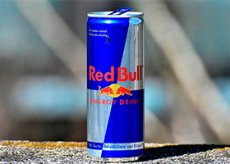New publications
Energy drinks hit you right in the heart
Last reviewed: 02.07.2025

All iLive content is medically reviewed or fact checked to ensure as much factual accuracy as possible.
We have strict sourcing guidelines and only link to reputable media sites, academic research institutions and, whenever possible, medically peer reviewed studies. Note that the numbers in parentheses ([1], [2], etc.) are clickable links to these studies.
If you feel that any of our content is inaccurate, out-of-date, or otherwise questionable, please select it and press Ctrl + Enter.

Regular consumption of so-called energy drinks negatively affects blood pressure readings and increases the likelihood of arrhythmia. To assess the adverse effects of such drinks, American scientists conducted a study led by Sachin A. Shah, a professor of pharmacology at the University of the Pacific. The results of the project work were presented on the official website of the American Heart Association.
The experiment involved 34 healthy participants, with an average age of 18 to 40 years. The volunteers were randomly offered almost a full liter of drink per day (32 ounces): some received an energy drink containing caffeine (two varieties), and others received a similar-tasting drink without the energy component (placebo). The subjects drank the offered drinks for three days in a row, one liter per day. One bottle of energy drink was drunk in about half an hour. Then the researchers measured the blood pressure of the participants, and also assessed cardiac activity using electrocardiography. All measurements were taken at the beginning of the experiment, as well as every half hour for four hours from the moment of drinking each drink.
The energy drinks contained between 304 and 320 mg of caffeine per 1 liter (or more precisely, per 32 ounces). It is believed that a caffeine amount of less than 400 mg should not cause any changes in the electrocardiogram. In addition to caffeine, the energy drinks contained such popular components as the amino acid taurine, B vitamins, and glucuronolactone (an ingredient in plant materials and connective tissues). The pseudo-energy drinks (fake energy drinks, placebos) contained carbonated water, lime juice, and cherry flavoring, but did not contain caffeine or other stimulants.
The researchers found that the QT interval increased by 6-7.7 milliseconds for four hours after drinking the drink in subjects who consumed real energy drinks. No such change was found in volunteers who consumed a placebo.
Abnormal electrocardiogram readings indicate the onset of a cardiac malfunction. As a result, arrhythmia may develop, which poses a serious threat not only to health but also to the lives of patients. In addition, scientists have identified a statistically significant increase in systolic and diastolic blood pressure readings by approximately 5 mm Hg in subjects after taking energy drinks.
Details of the study are described on the American Heart Association's website - newsroom.heart.org/news/energy-drinks-may-increase-risk-of-heart-function-abnormalities-and-blood-pressure-changes?preview=c1ff
